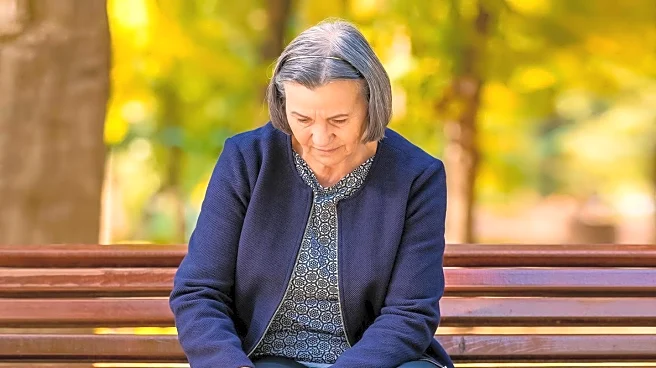What's Happening?
Men are increasingly engaging in conversations about menopause, recognizing its broader implications beyond mood swings. This shift is part of a larger redefinition of masculinity, where men are encouraged to support their partners through menopause. The article highlights stories of men who have become more involved in understanding and addressing menopause symptoms, such as hot flashes and mood swings, and the impact on their relationships. Men are attending medical appointments, participating in menopause retreats, and creating content to raise awareness. This evolution in masculinity emphasizes vulnerability and authenticity, moving away from traditional roles.
Why It's Important?
The involvement of men in menopause discussions signifies a cultural shift in gender roles and relationships. By understanding menopause, men can better support their partners, potentially improving marital satisfaction and reducing divorce rates linked to menopause-related issues. This change challenges traditional notions of masculinity, promoting emotional equity and partnership. It also highlights the importance of addressing women's health issues comprehensively, which can lead to better health outcomes for women and more harmonious relationships. The broader societal impact includes increased awareness and destigmatization of menopause, fostering a more inclusive dialogue around women's health.
What's Next?
As more men engage in menopause discussions, there may be increased demand for educational resources and support systems for both men and women. Healthcare providers might offer more inclusive services that involve partners in treatment plans. This trend could lead to more research on the impact of menopause on relationships and the role of men in supporting their partners. Additionally, social media and public platforms may see more content focused on men's involvement in menopause, further normalizing the conversation and encouraging more men to participate.
Beyond the Headlines
The shift in men's involvement in menopause discussions could lead to broader changes in societal perceptions of gender roles. It may encourage men to embrace vulnerability and emotional openness, challenging stereotypes of stoicism and detachment. This evolution could influence other areas of life, such as parenting and workplace dynamics, promoting a more balanced approach to gender roles. The cultural implications extend to redefining masculinity in a way that values empathy and partnership, potentially leading to more equitable relationships and societal structures.










